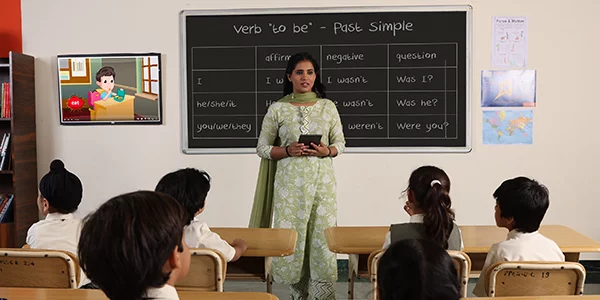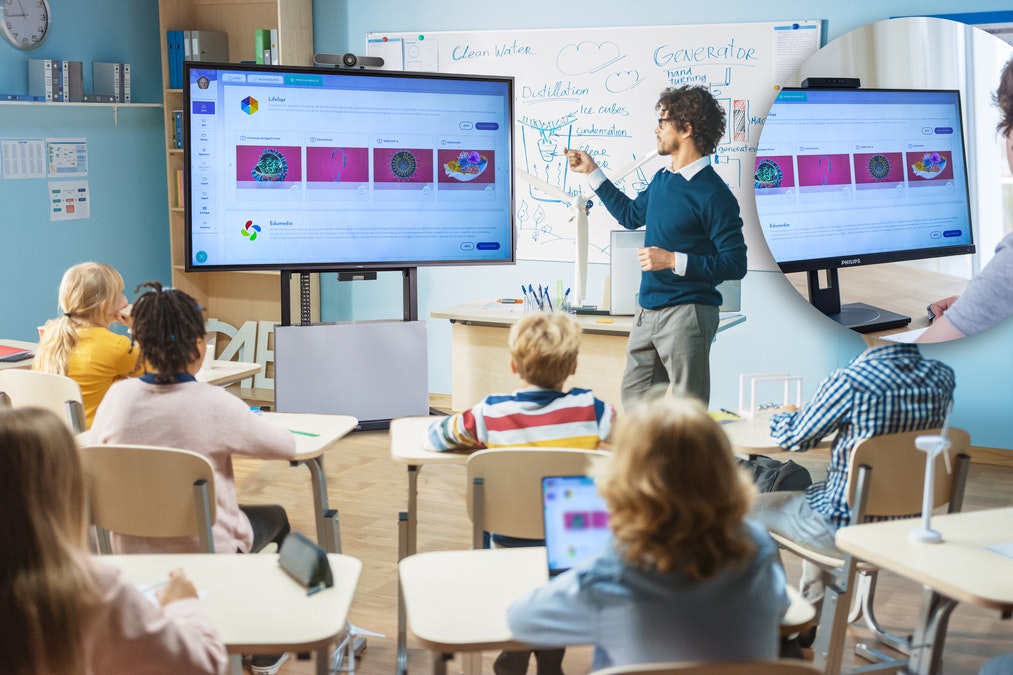Comprehensive Primary Science Tuition Singapore for Primary School Students
Comprehensive Primary Science Tuition Singapore for Primary School Students
Blog Article
Checking Out the Different Mentor Approaches in Main Scientific Research Education Today
Inquiry-based learning, hands-on experiments, and the combination of technology are redefining exactly how educators engage young minds. In addition, collaborative approaches and separated direction are being used to provide to the varied needs of pupils, boosting both engagement and understanding.
Inquiry-Based Learning
Inquiry-Based Learning (IBL) is a pedagogical technique that encourages trainees to explore clinical ideas with questioning, investigation, and hands-on testing. This technique highlights the duty of pupils as energetic individuals in their understanding, promoting important thinking and analytical abilities. By engaging with real-world inquiries, pupils end up being motivated and interested, which boosts their understanding of clinical concepts.
In IBL, teachers act as facilitators, guiding students as they browse their questions as opposed to providing details directly. This student-centered method enables differentiation, fitting various finding out paces and styles. Trainees create skills in creating hypotheses, creating experiments, and assessing data, which are essential for scientific proficiency.
Furthermore, IBL promotes partnership among pupils, urging them to share searchings for and ideas. This cumulative questions advertises social abilities and a feeling of community within the classroom. The process of query motivates durability, as students learn to embrace failing as a stepping rock toward understanding.
Hands-On Experiments
Hands-on experiments are a vital component of efficient science education, enhancing the principles of inquiry-based learning. These experiments enable trainees to involve straight with scientific principles, promoting a deeper understanding via experiential learning. By adjusting materials and observing outcomes, young students can grasp abstract theories in tangible ways.
Such tasks advertise important reasoning and analytical skills, as trainees hypothesize outcomes, conduct experiments, and evaluate outcomes. This process urges them to ask questions, improve their understanding, and establish a scientific frame of mind. Hands-on experiments can be customized to diverse understanding designs, making certain that all trainees have the opportunity to involve meaningfully with the web content.
Additionally, hands-on experiments often encourage partnership amongst peers, advertising team effort and interaction abilities. Functioning in teams makes it possible for pupils to share ideas, talk about findings, and gain from each other, which boosts their general educational experience.
Integrating hands-on experiments right into the main science educational program not only enriches the learning atmosphere yet also cultivates a long-lasting passion in science. By actively participating in their education, trainees are most likely to create a passion for clinical inquiry that expands beyond the class.

Innovation Integration
Integrating innovation right into primary science education and learning has ended up being progressively vital in cultivating trainee involvement and enhancing discovering results. The usage of electronic tools, such as interactive simulations, digital labs, and educational software, offers trainees with possibilities to discover clinical ideas in cutting-edge means. These sources assist in a much deeper understanding of complex subjects by enabling learners to envision and adjust variables that would be impractical in a standard class setup.
In addition, technology integration motivates personalized finding out experiences. Trainees can advance at their own speed, revisiting difficult ideas via multimedia sources, which satisfy different knowing designs. This adaptability not just supports private growth yet also grows a feeling of freedom in students.
Furthermore, innovation works as a bridge to real-world science, linking trainees with existing research and specialist payments. Access to clinical journals and on-line databases widens pupils' perspectives on scientific query and promotes critical thinking abilities.
Collaborative Learning
Joint learning plays an important function in main scientific research education and learning by fostering teamwork and communication abilities among students. This method motivates learners to work together, share knowledge, and participate in problem-solving, which improves their understanding of clinical ideas. By getting involved in team tasks, pupils discover to verbalize their concepts, listen to diverse perspectives, and work out solutions, every one of which are important skills in both real-world and scholastic contexts.

Research study indicates that collaborative discovering can result in raised motivation and interaction in science subjects, as students discover satisfaction useful source in common experiences (primary science tuition Singapore). In addition, this method prepares pupils for future collective ventures, outfitting them with the skills required for efficient team effort in college and professional environments. Ultimately, accepting collective understanding in main science education can substantially improve the understanding experience and promote a deeper understanding of scientific inquiry
Distinguished Instruction
:max_bytes(150000):strip_icc()/GettyImages-1475870499-b4c3034fc17f494ea9aba128e6140d6e.jpg)
Differentiated direction can show up in various methods, such as varying the material, procedures, or products of learning. Instructors may use tiered tasks that supply varying degrees of complexity, allowing students to function at their respective readiness degrees. In addition, flexible organizing techniques can facilitate collaboration amongst pupils with various capacities, cultivating peer understanding.
Assessment plays an important duty in this method, as it educates instruction and assists teachers recognize each student's special needs. Developmental evaluations, such as tests and observations, can guide teachers in readjusting their methods to enhance learning outcomes. primary science tuition Singapore. Ultimately, by executing differentiated direction in primary science education, teachers can grow an extra equitable and reliable knowing setting, empowering all students to reach their full possibility in understanding scientific phenomena
Final Thought
In summary, the diverse mentor approaches in key scientific research education and learning, including inquiry-based knowing, hands-on experiments, innovation combination, collective knowing, and separated guideline, jointly add to an extra effective understanding setting. These methods advertise critical reasoning, analytical skills, and a deeper comprehension of scientific principles. By executing these approaches, educators can develop engaging and encouraging class that deal with the varied requirements of pupils, inevitably fostering a long-lasting interest in scientific research and enhancing scholastic achievement.
Inquiry-Based Understanding (IBL) is a pedagogical strategy that motivates pupils to check out clinical concepts with questioning, examination, and hands-on testing.Joint understanding plays a crucial duty in primary scientific research education by promoting team effort and interaction skills amongst students.Research study shows that collaborative understanding can her response lead to enhanced inspiration and involvement in science subjects, as pupils find enjoyment in common experiences.In cultivating an inclusive knowing atmosphere, distinguished direction emerges as a crucial method to suit the varied needs and capacities of students in primary scientific research education. Ultimately, by carrying out separated instruction in main scientific research education and learning, instructors can grow an extra fair check this site out and reliable discovering setting, encouraging all pupils to reach their complete possibility in recognizing clinical sensations.
Report this page